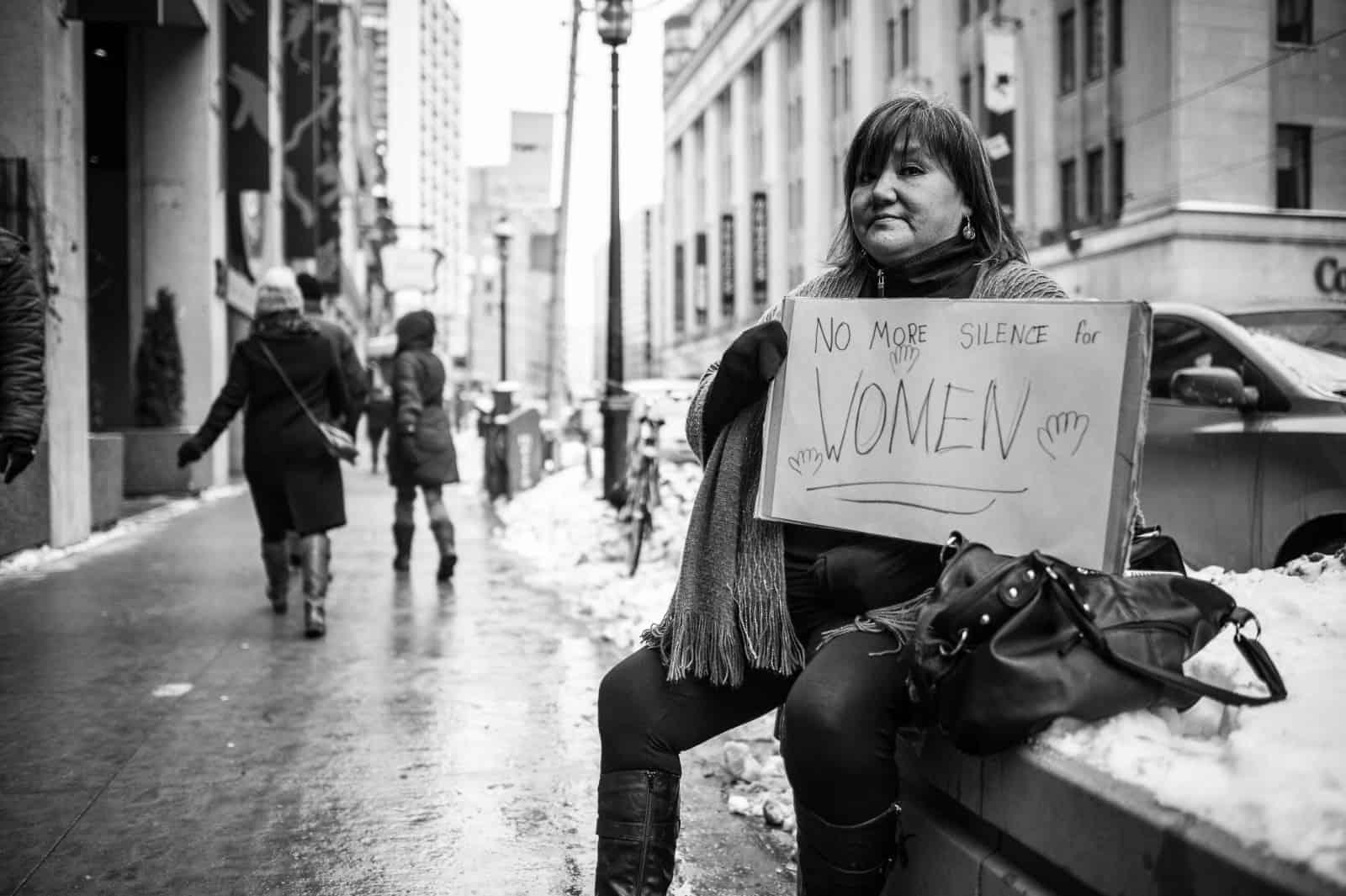- About
- Research
-
-
- Special Reports & Features
- Braiding Accountability: A Ten-Year Review of the TRC’s Healthcare Calls to Action
- Buried Burdens: The True Costs of Liquified Natural Gas (LNG) Ownership
- Pretendians and Publications: The Problem and Solutions to Redface Research
- Pinasunniq: Reflections on a Northern Indigenous Economy
- From Risk to Resilience: Indigenous Alternatives to Climate Risk Assessment in Canada
- Twenty-Five Years of Gladue: Indigenous ‘Over-Incarceration’ & the Failure of the Criminal Justice System on the Grand River
- Calls to Action Accountability: A 2023 Status Update on Reconciliation
- View all reports.
- Special Reports & Features
-
-
- Yellowhead School
-
- The Treaty Map
- LIBRARY
- Submissions
- Donate
“We need to keep families together. Colonization and missing and murdered Indigenous women has broken families. The children left behind by missing and murdered Indigenous women are mostly in foster care and then when they age out they end up on the street. The violence against missing and murdered Indigenous women continues with their children who are also violated and made vulnerable.”
THE DOWNTOWN EASTSIDE WOMEN’S CENTRE (DEWC) has just released Red Women Rising: Indigenous Women Survivors in Vancouver’s Downtown Eastside, based on the lived experience, leadership, and expertise of Indigenous survivors.
This comprehensive report is the culmination of a participatory process with 113 Indigenous women and 15 non-Indigenous women regarding the National Inquiry into Missing and Murdered Indigenous Women and Girls. The compelling stories, rigorous research, and holistic recommendations within the report drastically and urgently shifts the lens from pathologizing poverty towards amplifying resistance to and healing from all forms of gendered colonial violence.
The Yellowhead Institute strongly endorses the research presented in this report. Our institute was founded in order to analyze the structures of domination in Canada affecting Indigenous lives and to support Indigenous governance and self-determination through accessible information, collaborative research, and education.
This report embodies our core principles by contributing a rigorous and powerful assessment of the role of gender-based violence in a colonial context- and its impacts – as theorized by survivors.
There would be no Missing and Murdered Indigenous Women and Girls Inquiry without the dedicated advocacy of organizations like the Downtown Eastside Women’s Centre in the Downtown Eastside of Vancouver. This collective record of members is an invaluable contribution to broader national efforts to diagnose the underlying causes of violence against Indigenous women, girls, trans and two-spirit people in Canadian society and therefore the tangible roots of oppression to address. We stand behind this excellent report and the Indigenous leadership it provides on the elimination of gender-based violence on these lands.
Violence against Indigenous women, girls, trans and two-spirit people is one of the most pressing human rights issue in Canada today.
Red Women Rising: Indigenous Women Survivors in Vancouver’s Downtown Eastside is an extraordinary report with Indigenous women survivors at the center; rather than as a secondary reference. Indigenous women in the DTES—a neighbourhood known as ground zero for violence against Indigenous women—are not silent victims, statistics, or stereotypes. This unprecedented work shares their powerful first-hand realities of violence, residential schools, colonization, land, resource extraction, family trauma, poverty, labour, housing, child welfare, being two-spirit, police, prisons, legal system, opioid crisis, healthcare, and more.

